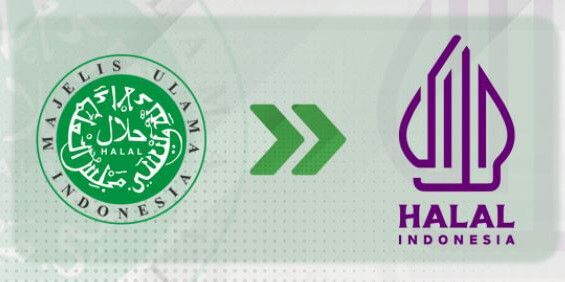Indonesia introduces new halal logo and tariff
New halal labelling regulations will apply to local and international companies, while the new service tariff laws forms part of the government’s commitment to provide tariff certainty and transparency.
Jakarta: The Indonesian government has changed its halal label concerning guaranteed halal products with both local and multi-national companies certified via the country’s Halal Product Assurance Organising Agency (BPJPH) also expected to comply with the new regulations.
The Badan Penanggulangan Jaminan Produk Hala (BPJPH) has, since 2017, been enacted by the Indonesian government to conduct and authorise the halal certification registration and process.
The BPJPH head of the halal certification registration centre Mastuki told Salaam Gateway Indonesia would inform countries or organisations with mutual recognition agreements about the law change relating to the new logo. This will include neighbour Malaysia and the European Securities and Market Authority (ESMA) members.
He said the adjustments were effective for two categories, divided according to when products had received the BPJPH certification. For products registered after 1 March 2022, it would be mandatory for businesses to include the new Indonesian halal label on the product packaging along with the halal certificate number. Products that had received a halal certificate before that date had two conditions:
-
if they had not made the product packaging, the company could use the Indonesian halal label or
-
if they had made product packaging, the company could finish the existing packaging stock and thereafter use the Indonesian halal label.
Mastuki said these provisions were in line with the government’s regulations on the implementation of the halal product assurance sector that stipulates the halal logo can be used for a maximum five years after the regulation’s promulgation, effective February 2021.
New tariff
The agency also issued new tariffs concerning payment procedures for BPJPH BLU services. Mastuki said the decree was a follow-up to the minister of finance’s issuance issued on 4 June 2021 and the government regulations relating to implementing the halal product assurance sector. The service tariff regulations also form part of the government’s commitment to provide tariff certainty and cost transparency for Indonesia’s halal certification services.
Types of tariffs
The new decree stipulates two types of service tariffs, namely application and halal inspection tariffs. The service tariff consists of application and halal inspection fees with the business depositing the payment into the BPJPH public service agency account. Mastuki said the cost of applying for a halal certificate of goods and services belonging to micro and small enterprises (MSEs) was 300,000 rupiah ($20.90) plus the maximum cost of halal inspection (350,000 rupiah – $24.40) to bring the total cost to 650,000 rupiah ($45.30).
For medium-sized food production businesses with simple processes and materials, the total cost is 8 million rupiah ($557.60) consisting a 5 million rupiah ($348.50) certificate application fee and a maximum 3 million rupiah ($209.10) examination fee.
The following costs apply for a halal certificate for goods and services (per certificate):
1. Halal certificate application:
-
MSE – 300,000 rupiah ($20.90)
-
Medium enterprises – 5 million rupiah ($348.50)
-
Large business and/or originating from overseas – 12.5 million rupiah ($871.30)
2. Halal extension certification application:
-
MSE – 200,000 rupiah ($13.90)
-
Medium enterprises – 2.4 million rupiah ($167.30)
-
Large business and/or originating from abroad – 5 million rupiah ($348.50)
3. Limit for unit cost of the Halal Inspection Agency product halal inspection fee for MSE:
-
Products in the positive list/products with simple processes/materials, processed food, medicines, cosmetics, goods usage, services, restaurant/catering/canteen and slaughterhouse/poultry and slaughter services – 350,000 rupiah ($24.40) each.
Limit for the unit cost of product halal inspection fee by the Halal Inspection Agency for medium, large and overseas business:
-
Products in the positive list/products with simple processes/materials – 3 million rupiah ($209.10)
-
Processed food, chemical products and microbial products – 6.47 million rupiah ($450.70)
-
Flavour and fragrance – 7.7 million rupiah ($533.30)
-
Genetically engineered products – 5.4 million rupiah ($377.20)
-
Medicines, cosmetics and biological products – 5.9 million rupiah ($411.20)
-
Vaccines – 21.13 million rupiah ($1,472.20)
-
Gelatine – 7.9 million rupiah ($551.40)
-
Goods and packaging – 3,9 million rupiah ($274.40)
-
Services – 5.3 million rupiah ($367.60)
-
Restaurant, catering and canteen – 3.7 million rupiah ($256.90)
-
Slaughterhouse, poultry and slaughter services – 3.9 million rupiah ($274.40)
Self-declaration: the tariff provisions for halal certification application services, with a statement of self-declared business actors for micro and small enterprise (SMEs), are subject to a tariff zero rupiah. This will be financed by the state budget, alternative MSE financing, partnership fund financing, grants from government or other institutions, revolving funds or other legal and non-binding sources.
Mastiku said last year the payment for self-declared service fees deposited by facilitation providers was 300,000 rupiah ($20.90). For the 2022 state budget, it will be adjusted by considering the state’s financial capacity.
The BPJPH head said the self-declaration mechanism meant SMEs must meet various criteria to qualify for the zero rupiah tariff.
© SalaamGateway.com 2022. All Rights Reserved
